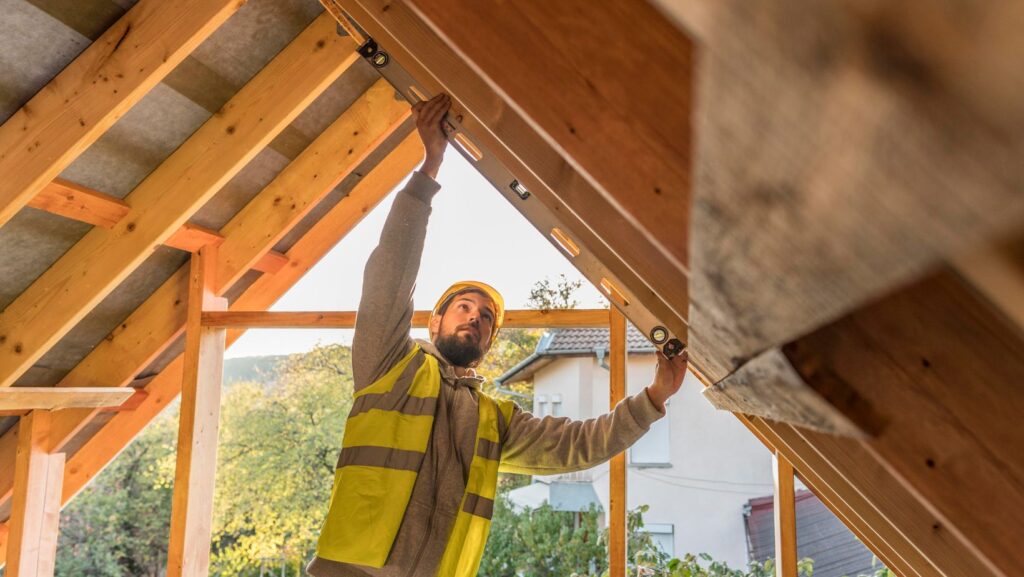Your roof is one of the most critical parts of your home. When it needs repairs, hiring a trustworthy and skilled roofer is paramount. However, choosing the right one can take time and effort, especially with so many roofing contractors available.
Asking the right and timely questions can make all the difference. By doing so, you can feel confident in your choice and hopeful for a successful repair.
Questions to Ask Your Roofer
Here are the questions to ask when hiring a roofer, including why they matter and what you should listen for in their responses:
1. Are You Licensed and Insured?
Ensuring your roofer is licensed and insured is the first step in protecting yourself from potential liabilities. A licensed roofer has met local industry standards, indicating they possess the necessary skills and knowledge to perform roofing work safely and effectively. Most states have an online database where you can verify a roofer’s licensing status, providing homeowners an extra layer of security.
Insurance is equally important as it protects you and the roofer from potential accidents or damages. Always ask for proof of insurance before hiring a roofer to ensure your peace of mind.
2. How Much Experience Do You Have?
Experience is a reliable indicator of a roofer’s expertise and reliability. A roofer with many years of experience will likely have encountered various roofing issues and developed effective solutions. When asking about their experience, inquire about the specific types of projects they have completed and any specializations they might have. Experienced roofers are better equipped to handle unexpected challenges.

Moreover, experienced roofers often have a portfolio of past projects and references from satisfied customers. Analyzing these can give you a better idea of their capabilities and reliability. A roofer with a proven track record is more likely to complete your project on time and within budget. Ask for references and follow up with them to get a sense of the roofer’s professionalism and quality of work.
3. Do You Provide a Written Estimate?
A detailed written estimate is crucial for transparency and accountability. It should outline the scope of work, materials, labor costs, and the project timeline. Having a written estimate helps prevent misunderstandings and ensures that you know all aspects of the project before it begins. This document is a binding agreement between you and the roofer detailing what is expected and what will be delivered.
Additionally, a written estimate allows you to compare quotes from different roofers, helping you make an informed decision based on cost, materials, and the scope of work. Check for completeness of the estimate to avoid hidden fees or surprises.
4. What Kind of Warranty Do You Offer?
Warranties demonstrate a roofer’s confidence in their work and the materials they use. Inquire about the manufacturer’s warranty for materials and the roofer’s warranty for labor. A comprehensive warranty protects you against defects and installation errors.

The specifics of the warranty can vary, so understand what is covered and for how long. Some warranties cover only specific types of damage or have conditions that must be met to remain valid.
5. Do You Have Available Financing?
If you have immediate roof repairs but limited budget, look for local roofing companies that finance urgent repairs. Financing can make it easier to manage the cost over time and ensure that essential repairs are not delayed, potentially causing more damage.
Key Takeaways
Hiring a roofer is a significant decision that affects the safety and value of your home. Make sure your roof repairs are handled by a skilled and reliable professional.
- Ensure the roofer is licensed and carries both general liability and worker’s compensation insurance.
- Choose a roofer with substantial experience and a portfolio of past projects.
- Get a detailed written estimate outlining the scope, costs, and timeline of the project.
- Confirm the types of warranties offered, including both material and labor warranties.
- Ask about financing options.
